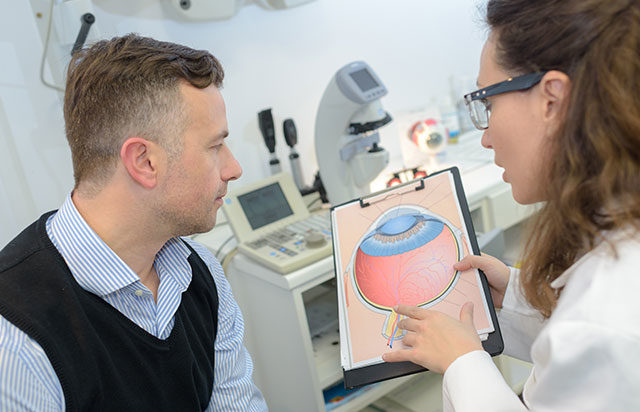
Glaucoma is a complex and multifactorial eye condition characterized by damage to the optic nerve, often resulting in a gradual loss of peripheral vision that can progress to blindness if left untreated. While the exact causes of glaucoma remain elusive, elevated intraocular pressure (IOP) is a key risk factor believed to contribute to optic nerve damage.
In many cases, glaucoma arises from impaired drainage of aqueous humor, the fluid that circulates within the eye. This can occur due to abnormalities in the eye’s drainage network, blockages caused by natural materials or injury, or other underlying factors. However, it’s important to note that glaucoma can also develop even when intraocular pressures are within the normal range, highlighting the complex nature of the disease.
Despite ongoing research efforts, the precise mechanisms underlying glaucoma pathogenesis continue to be the subject of investigation. Nonetheless, early detection and management of glaucoma remain paramount in preserving vision and mitigating its progression.
Indeed, one of the most insidious aspects of glaucoma is its silent progression, often manifesting initially as a gradual loss of peripheral vision without any accompanying pain or noticeable symptoms. This stealthy onset means that individuals affected by glaucoma may remain unaware of the condition until it has significantly advanced.
Because of this, routine eye examinations are critical for the early detection of glaucoma. During these comprehensive evaluations, eye care professionals can assess intraocular pressure, examine the optic nerve for signs of damage, and perform visual field tests to detect any subtle changes in peripheral vision. By identifying glaucoma in its early stages, treatment can be initiated promptly to help preserve remaining vision and prevent further damage to the optic nerve.

Glaucoma, unfortunately, cannot be prevented. However, with early detection and appropriate treatment, vision loss due to glaucoma can often be effectively managed and the progression of the disease slowed. Today, thanks to advancements in medical science and increased awareness, blindness from glaucoma is rare. The cornerstone of combating glaucoma lies in early detection. Therefore, regular eye examinations are crucial for everyone, especially individuals with a family history of glaucoma or other risk factors. It's generally recommended that adults undergo comprehensive eye exams at least every two years, or more frequently if indicated by their eye care provider. Early diagnosis enables prompt initiation of treatment, which can help preserve remaining vision and prevent further damage to the optic nerve. By adhering to a regular eye care schedule and staying proactive about eye health, individuals can significantly improve their chances of maintaining good vision and overall eye health throughout their lives.



































